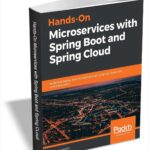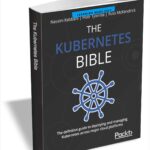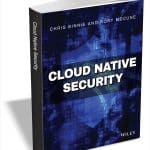Get 'Mastering Kubernetes -- Fourth Edition' (worth $43.99) for FREE

The fourth edition of the bestseller Mastering Kubernetes includes the most recent tools and code to enable you to learn the latest features of Kubernetes 1.25.
This book contains a thorough exploration of complex concepts and best practices to help you master the skills of designing and deploying large-scale distributed systems on Kubernetes clusters. You’ll learn how to run complex stateless and stateful microservices on Kubernetes, including advanced features such as horizontal pod autoscaling, rolling updates, resource quotas, and persistent storage backends.
New service aims to make cloud more accessible

With so many different platforms and technologies available, navigating the world of cloud computing can be tricky.
In a bid to make things simpler Acorn Labs is announcing public beta availability of its cloud developer platform Acorn, a service that makes it simple for anyone to run software in their own cloud sandbox and easily share their creations.
Get 'Hands-On Microservices with Spring Boot and Spring Cloud' (worth $39.99) for FREE

Microservices architecture allows developers to build and maintain applications with ease, and enterprises are rapidly adopting it to build software using Spring Boot as their default framework.
With Hands-On Microservices with Spring Boot and Spring Cloud, you’ll learn how to efficiently build and deploy microservices using Spring Boot. This microservices book will take you through tried and tested approaches to building distributed systems and implementing microservices architecture in your organization.
AI chatbot simplifies Kubernetes management

Kubernetes management platform company D2iQ is launching new updates to its D2iQ Kubernetes Platform (DKP) that include DKP AI Navigator, an AI assistant that enables enterprise organizations to overcome the skills gap they face in adopting cloud-native technology.
DKP AI Navigator enables organizations to harness more than a decade of the D2iQ team’s experience. It's been trained on D2iQ's internal knowledge base, enabling customers to ask questions and receive real-time responses in a natural, intuitive way. This can reduce the duration and cost of system misconfigurations and downtime while helping organizations overcome the Kubernetes skills gap.
Get 'The Kubernetes Bible' (worth $43.99) for FREE

With its broad adoption across various industries, Kubernetes is helping engineers with the orchestration and automation of container deployments on a large scale, making it the leading container orchestration system and the most popular choice for running containerized applications.
This Kubernetes book starts with an introduction to Kubernetes and containerization, covering the setup of your local development environment and the roles of the most important Kubernetes components.
A holistic approach to closing the container security gap [Q&A]

Among cloud developers, Kubernetes is now a widely used platform. It's not immune to security incidents, however, and these can lead to loss of revenue or customers.
So, what's the best way to secure Kubernetes systems? Alex Jones, engineering director Kubernetes at Canonical, suggests a need to look beyond containers with a holistic approach to security that spans all layers of the system. We talked to him to discover more.
What IT pros want from container security solutions

What capabilities do IT professionals need for container networking and security? That's what a new study from Tigera has set out to discover.
A survey of more than 1,200 users of the Calico Open Source container security platform finds the capabilities driving their adoption of Calico are, scalable networking (35 percent), security policies (35 percent), interoperability across different environments (33 percent) and encryption capabilities (30 percent).
Canonical brings OpenStack to small-scale clouds

Canonical has announced the extension of its commercial OpenStack offering to small-scale cloud environments with a new project, Sunbeam.
The project is 100 percent open source and is available free-of-charge, but enterprise customers can also opt-in for comprehensive security coverage and full commercial support under the Ubuntu Pro + Support subscriptions once they’ve completed the deployment.
Databases on Kubernetes -- Support your cloud native strategy with open source Kubernetes operators

Today, developers are used to running applications in the cloud. They are accustomed to using software containers and building applications using microservices components connected by APIs. Gartner estimates that more than 90 percent of global organizations will be running containerized applications in production by 2027, up from less than 40 percent in 2021. Similarly, the company has predicted that 70 percent of organizations will complement continuous delivery for their applications with continuous infrastructure automation to improve business agility by 2025.
From an infrastructure perspective, this means Kubernetes. However, Kubernetes was initially built to manage stateless application components rather than the rest of the infrastructure that goes to make up IT systems. For the other elements involved, such as databases, containerization had to be made to fit.
Ransomware-in-a-box: Why containers are a cybersecurity risk

With the creation, storage, and use of data continuing to accelerate dramatically, security vulnerabilities and risks to data integrity are also escalating across the board. The trends are alarming, with one recent study from IDC -- looking at the requirements for ransomware and disaster recovery preparation -- revealing that in 2022, almost 80 percent of organizations surveyed had activated a disaster response. What’s more, 83 percent had experienced data corruption, and most worrying of all, almost two-thirds said that a ransomware attack had resulted in unrecoverable data.
Indeed, there is currently no application type that can be considered to be completely safe from ransomware. Among the wide range of possibilities this situation creates are the risks posed to organizations that are refactoring their applications for Kubernetes. Refactoring is an increasingly popular approach to application deployment, whereby apps are broken down into a range of services that can subsequently be operated independently. One of the key benefits this offers is that the application’s underlying hardware is used more efficiently, while each service can also be scaled as required without impacting other services and resources.
Get 'Cloud Native Security' (worth $24) for FREE

Cloud Native Security delivers a detailed study into minimizing the attack surfaces found on today's Cloud Native infrastructure.
Throughout the work, hands-on examples walk through mitigating threats and the areas of concern that need to be addressed. The book contains the information that professionals need in order to build a diverse mix of the niche knowledge required to harden Cloud Native estates.
Canonical and NVIDIA work to make AI more accessible in the enterprise

In 2018, OpenAI reported that the amount of computing power used in large-scale AI training runs had been doubled every 3.4 months since 2012. Around the same time, the volume of data generated also increased dramatically.
This means traditional, general-purpose enterprise infrastructure can't deliver the required computing power, nor can it support the petabytes of data required to train accurate AI models at this scale. Instead, enterprises need dedicated hardware designed for AI workloads.
Kubernetes market matures as optimization and control of costs become key

A new survey from Pepperdata of 800 executives and senior ITOps and DevOps professionals across major industries finds the Kubernetes market is maturing, the number of clusters that are being deployed has grown to six to ten per organization.
The variety and types of workloads is increasing too, including data ingestion, cleansing, and analytics, databases, and artificial intelligence and machine learning.
Almost half of IT pros see a rise in their Kubernetes spending

A new survey of 1,000 cloud developers from Civo finds 47 percent have seen an increase in their year-on-year spending on Kubernetes clusters.
Of those who have seen costs rise, the majority saw a rise of up to 25 percent in year-on-year spend, and a significant group (10 percent) had seen a more than 50 percent increase. This is partly a result of increased adoption as 57 percent of respondents have seen an increase in the amount of Kubernetes clusters running in their organization over the last year.
Service mesh and the CISO [Q&A]

The number of use cases for Kubernetes is expanding as an increasing number of enterprises across a wide array of industries are adopting it as their platform of choice. However, this also expands the enterprise attack surface and business risk as a result.
We spoke to William, Morgan CEO of Buoyant, about how CISOs are coming face-to-face with the insecurity that can arise from managing Kubernetes platforms. They are beginning to see the risks that can unfold as well as how a service mesh can support a security stack.
Recent Headlines
Most Commented Stories
BetaNews, your source for breaking tech news, reviews, and in-depth reporting since 1998.
© 1998-2025 BetaNews, Inc. All Rights Reserved. About Us - Privacy Policy - Cookie Policy - Sitemap.